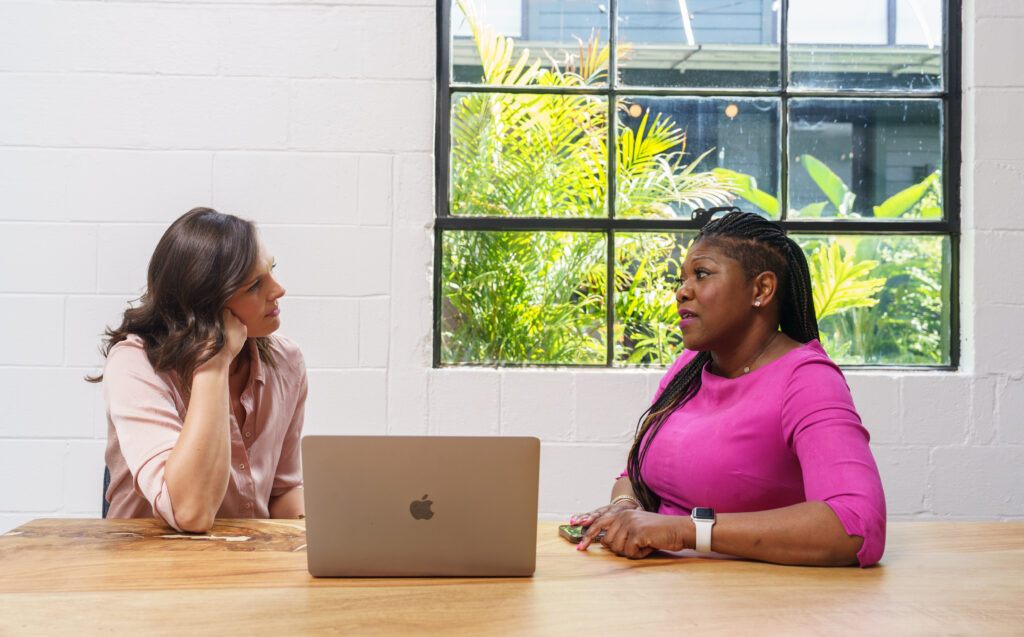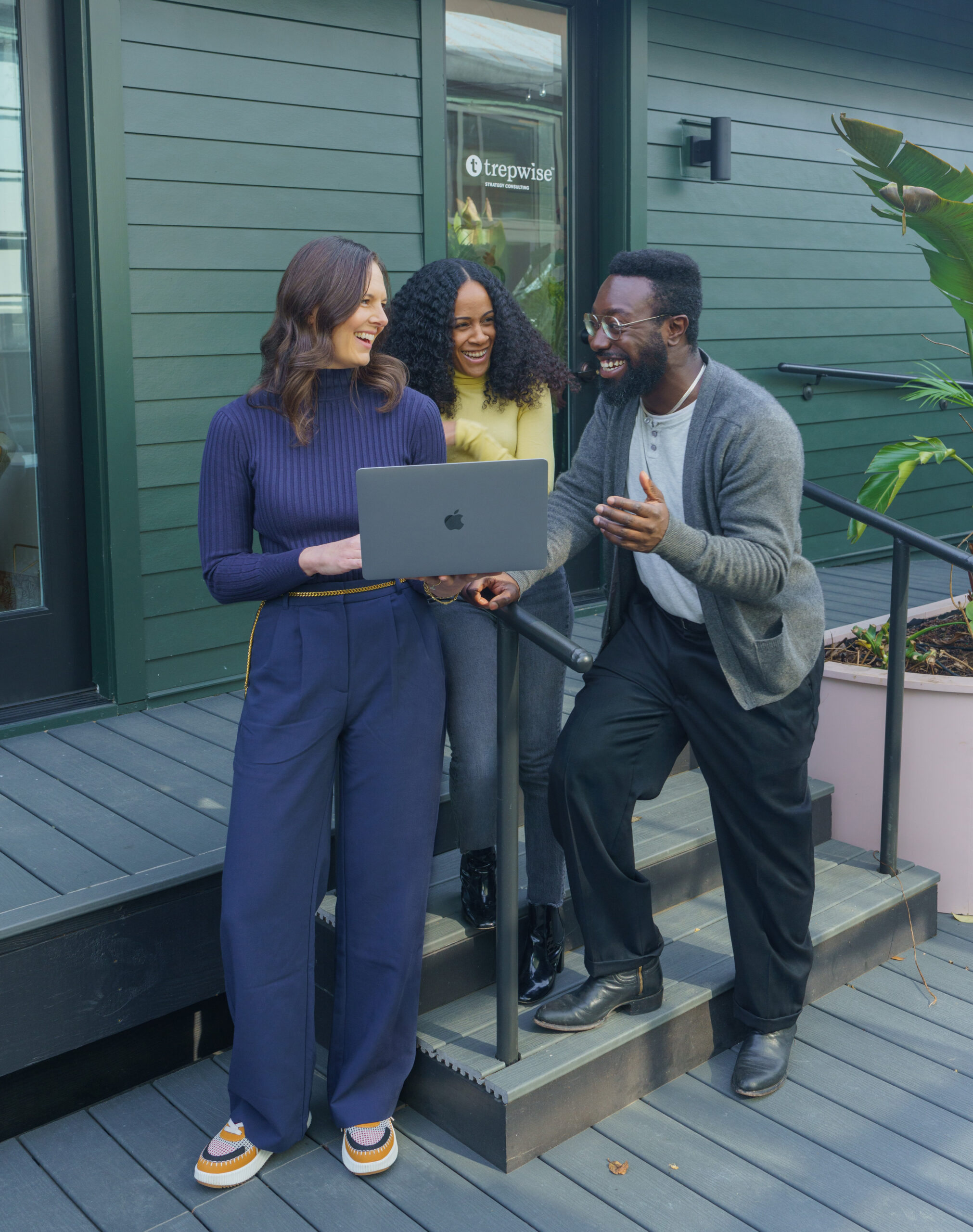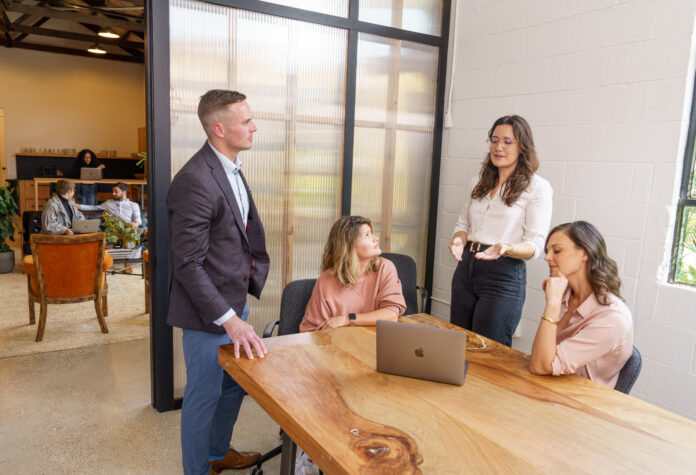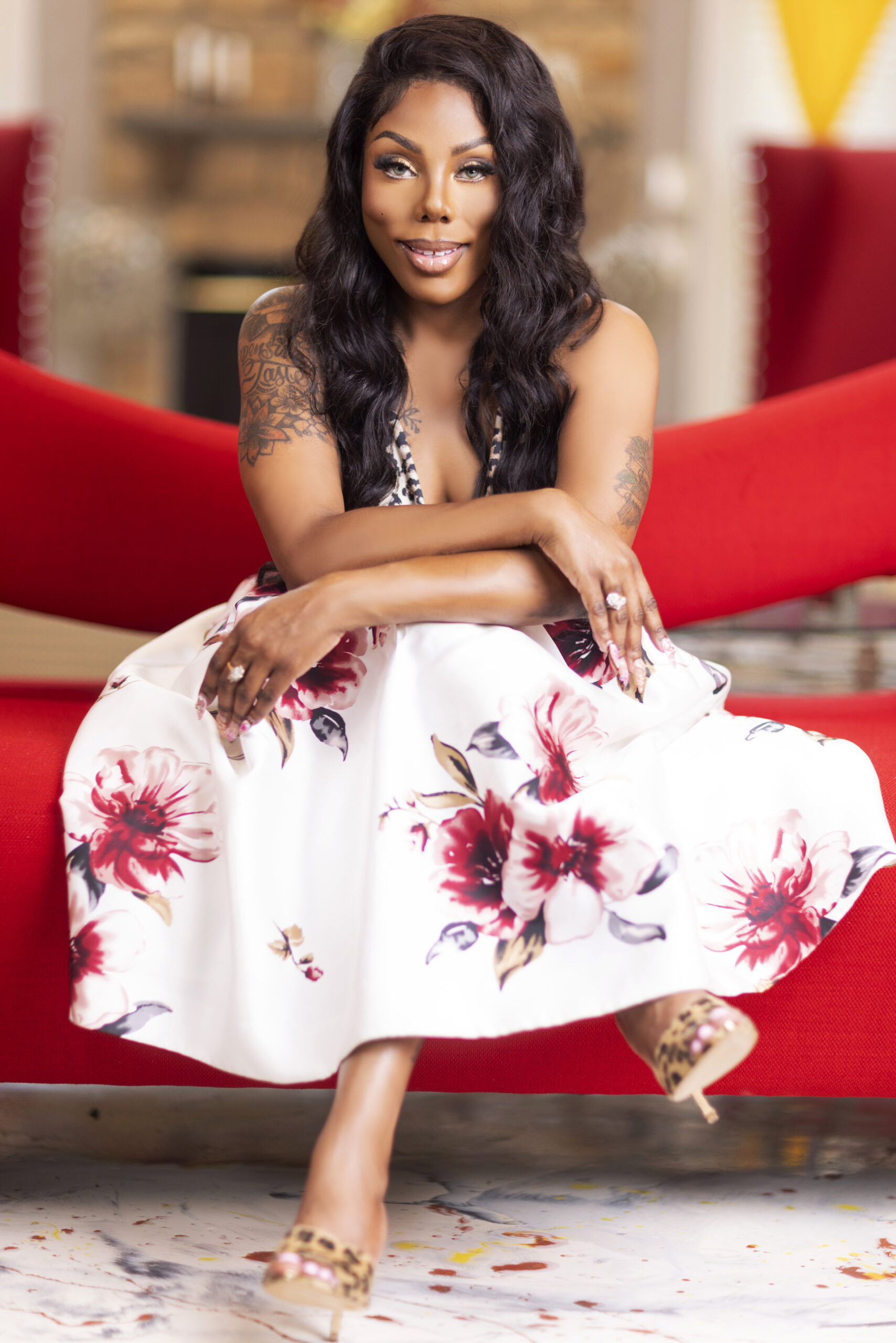( ENSPIRE Business ) Women in Business Work Together to Build Equity as Women-Owned Businesses Thrive
ENSPIRE Contributor: Nicole Armstrong
Despite women CEOs only making up 10.6% of Fortune 500 company leaders, the recent impact of women-owned businesses on the US economy is significant. Over 13 million businesses in the U.S. are led by women, and these businesses have reported a staggering $1.8 trillion in annual revenue.
To continue the growth of successful woman-owned businesses, New Orleans-based strategy consulting firm Trepwise is helping these businesses and women-led purpose-driven organizations unlock their potential to build prosperous and equitable communities by aligning people, processes, and vision while infusing a sense of humanity into the workplace.

We spoke with Trepwise Managing Director Lauren Siegel to learn more about her mission to uplift women in business.
What is the most critical aspect of maintaining a successful business?
Empathetic Listening: You may have amazing ideas. You may have a knack for creativity, innovation, and improving things. But do you know if anyone wants or needs what you have to offer? Whether you are leading or founding a nonprofit, foundation, or company, you have to understand what people need. You have to listen to the context of those needs, meaning what the result/impact on their daily lives is. And then you have to design, create, and iterate your offerings or programming based on a continual practice of listening. But sometimes, just listening isn’t enough. You have to listen without placing your own assumptions, biases, and judgments on people’s needs. Practicing empathy helps you understand the deep-seated emotional responses that needs create. That information is the most powerful in leading a business that sustains year after year. And, by the way, many women happen to be really good at this!
What is your favorite part of working for Trepwise? What aspect of your role excites you most?
The best moments of my work have to do with the people. We advise organizations, but ultimately, we are working to change how people think, specifically leaders. My favorite moments are those where I’ve done a good job in my role of discovery and synthesis so that the strategy presented makes so much sense to the leader. I can see it click in their mind and they buy in to the path forward. Almost instantly, they feel more confident because they have a plan to translate to their teams, funders, partners, and beneficiaries.
How does your connection to the New Orleans area impact your professional experiences?
I was born and raised in New Orleans. We have a sense of community and togetherness in our culture. After Katrina, we saw loads of organizations and nonprofits forming because there was so much need and so much funding coming into the city. What we have seen since then—and why Trepwise was originally founded—was that as those dollars started to dry up and the Katrina story became old news, funders moved on. That created a serious issue of competition among the organizations that worked here, and it has been a real multi-year learning curve for organizations in our community to see that we better work together and to figure out who is good at what. Ultimately, I find that the organizations in our community—for-profit and nonprofit alike—are very willing to work together once they trust that we are doing that out of good faith and good purpose, and funders really prioritize that collaboration.

Does Trepwise bring any new professional experiences not present in previous workplaces? What sets it apart from prior experiences?
The exciting thing about working at Trepwise is that everyone on the team gets to be involved in the client-side work. Many other client-facing workplaces are not structured to feature everyone’s contribution to a project’s success. For instance, in a traditional law firm, the partner is the face of a client matter, while associates do most of the work behind the scenes. It is the same in traditional consulting models. At Trepwise, however, we believe that everyone on our team has unique assets and areas to learn. Exposure to clients is a great way to help more junior members practice their skills (under the supervision of an experienced leader), see the impact of their work in real-time, and learn how to build meaningful relationships with clients. In our society, we tend to underestimate the potential of new or junior associates to add value to work meaningfully, but the nature of our clients and our human-centered approach is only strengthened by bringing more perspectives into the room.
How is your personal experience as a woman in business? Are there any standout moments, either positive or negative, that emphasize your expertise?
If we think about the working world, whether nonprofit or for-profit, men designed the system for men to serve the needs of men at a time when the workforce was almost 100% men, and that’s OK. But that was a long time ago. Now, women have entered the workforce, yet the system itself has not changed, and that’s why we are at a disadvantage because we’re trying to fit ourselves as women into a system that was designed for men. That’s how I think about it, and that motivates me to help women redesign their little piece of the system. The work of constantly having to prove your worth as a woman in a male-dominated field can feel weighty at times. But I continue to find inspiration in the company of other amazing women and allies from all genders. Together, we can lift each other up and share our power.
What do you want to see for the future of women-owned and women-led businesses? How do you want to be a part of that future?
I want us not to have to have conversations about empowering women in the workplace anymore…because we have all reached empowerment simply by existing. In the US, there are more women than men, but we still need to prove that we are just as capable. I want our differences recognized as powers, not as weaknesses. And I want more women to have a seat at the proverbial table.
In my work and in my life, I spend my time listening. To other women, and to all people, really. I hear things that excite and inspire me, things I think other women need to know… In my little slice of the world, I work tirelessly to share information, resources, connections, and opportunities with the women within my reach. I lean into a “give before you get” mindset and encourage others to do the same because I never want to be a gatekeeper. If we can all gatekeep less and share more of our resources and power with each other, empowerment will happen.
One of my roles at Trepwise is to figure out where women are in their organizations. More tangibly, that means giving them permission to lead with their natural caring and empathy—leaning into who they are. When women can do that, their superpowers are relationship building, understanding team building, and building networks, which is very powerful.
Learn more about Trepwise and its incredible mission on its website.
Related Articles: Women of Worth Inc. Shakira Hemphill the Visionary Founder, Psychic and Businesswoman Alisha Chelsea Jones










